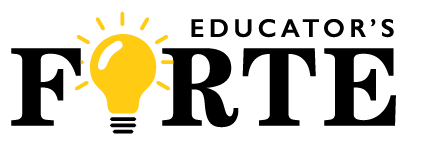Closing out the semester smoothly is not for the weary; it is not light work by any stretch of the imagination. It is overwhelming, and there are many things that must be remembered an executed on a strict timeline. Students are stressing; parents are stressing. Yet, teachers are expected to keep it all together, leading them to become very overwhelmed. Being overwhelmed can have significant negative effects on productivity. When it feels like there are a million tasks to complete, prioritizing those tasks is often very difficult which pushes many teachers to procrastinate. This article will discuss some strategies to help teachers wrap up the first semester right, reducing their feelings of anxiety, and increasing their level of productivity, which will positively impact everyone they touch.
Communicate, Communicate, Communicate
End-of-semester assessments and deadlines can be stressful for students, families, and educators. Clear communication helps alleviate anxiety for all parties by providing a roadmap for what to expect and how to prepare. It ensures that students understand any remaining assignments, projects, or exams. This clarity reduces confusion and enables students to meet expectations. Students may have concerns or questions about their performance, grades, and the course material. Effective communication provides an opportunity for teachers to address these concerns and offer support. Reminding students and families of deadlines is particularly important at the end of the semester when multiple assignments and exams may be due.

Provide Feedback and Encourage Reflection
Providing timely and constructive feedback on students’ performance is essential for their growth. Clear communication about assessment criteria and feedback helps students understand their strengths and areas for improvement. This feedback provides an opportunity to think about their learning experiences, understand their academic progress, and set goals for future improvement. Facilitating reflection allows teachers to better understand their students’ perspectives and learning styles. This insight helps in tailoring teaching approaches to meet the diverse needs of students. Additionally, reflection prompts students to think about their own thinking processes. The metacognitive awareness is crucial for becoming independent and self-regulated learners. Through reflection, students can make connections between new information and their existing knowledge, deepening their understanding of the subject matter.

Prioritize Tasks
Identify and prioritize tasks based on urgency and importance. Focus on completing high-priority items first to ensure essential responsibilities are addressed. Develop a detailed schedule for each day, allocating specific time blocks to various tasks. This can help prevent time-wasting and ensure that all necessary activities are covered. Break down larger tasks into smaller, more manageable steps which makes it easier to approach the work, reduces the feeling of being overwhelmed, and allows for a sense of accomplishment with each completed sub-tasks. Group similar tasks together and tackle them in batches. This can minimize the mental effort required to switch between different types of activities and improve overall efficiency.

Minimize Perfectionism
A common character trait many teachers possess is being a perfectionist. While it’s important to do your best, perfectionism can lead to unnecessary stress and delays. Recognize when a task is “good enough” and move on to the next one. Perfectionism is not always a positive trait. During times of high stress, such as in the midst of closing out a semester during the hustle of the holidays, extreme perfectionism can lead to stress, burnout, and a constant feeling of inadequacy. Striving for excellence is admirable, but it’s essential to find a balance and recognize that perfection is often unattainable. There is no greater time to allow grace than during the busy end-of-semester buzz.

In the whirlwind of closing out the semester amid the holiday hustle, the weight on teachers’ shoulders can be overwhelming. The stress is palpable, affecting students, parents, and educators alike. Yet, in the midst of this chaos, teachers are expected to keep it all together. This pressure can lead to feelings of being overwhelmed, negatively impacting productivity. However, there are strategies to navigate this challenging time effectively. Communication emerges as a powerful tool, offering a roadmap that alleviates anxiety for everyone involved. Providing timely feedback and encouraging reflection not only supports student growth but also enhances the teacher-student connection. Prioritizing tasks and breaking them down into manageable steps helps to regain control, while minimizing the grip of perfectionism is a key to maintaining sanity.
